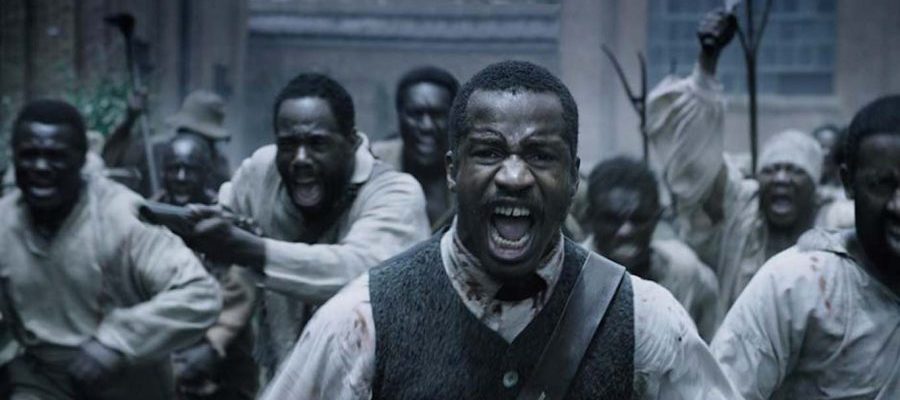Review: Does 'The Birth of a Nation' Redeem Nate Parker?

Meaghan McDonough ’17 / Emertainment Monthly Staff Writer
Up until the recent slew of bad press for its director, writer, and star Nate Parker, The Birth of a Nation was the most anticipated film of 2017’s award season. It was an early favorite at both Sundance and the Toronto Film Festival, earning rave reviews from critics and creating a bidding war for the rights that ended in the record-breaking $17.5 million purchase by Fox Searchlight. The Birth of a Nation promised to bring the untold story of Nat Turner (Nate Parker), the enslaved African American hero who led one of the greatest slave rebellion in the antebellum South. Advertised as a film to rewrite history, to rally the troops fighting for social justice today, The Birth of a Nation was set to break down the Academy’s #OscarsSoWhite status that was all the talk of last year.
Nate Parker’s epic seeks to explore the life of Nat Turner from start to finish: how his early love of reading turns into a fascination with the Bible that eventually gives him the desire and talent required of becoming a preacher. How, after all of this, Turner realizes that the same Bible that the slave owners use to rationalize slavery also condemns it. Turner goes on to rally his own band of troupes and seek retribution by murdering dozens of white slave owners across the Virginia countryside. And, both historically and in the film, it ends poorly for Turner and his allies—but not for their movement.

This is what else: a darker twist on the ever-popular superhero flick. Parker’s portrayal of Nat Turner, both as he functions in the characters shoes but also as he writes the character off-screen, is closer to myth than man. With all the focus on Turner—both in terms of characterization but also in literal cinematography—it’s hard not to view The Birth of a Nation as an origin story for an unmasked, religious vigilante hell-bent on getting revenge on his oppressors. And perhaps that is a story worth telling: but not with Nate Parker in the role.

In doing this, Parker fails not only to utilize the brilliant actors assigned to supporting roles but also struggles to build the community in support of Nat Turner’s rebellion. Aja Naomi King, who plays Turner’s wife, Cherry, is a spotlight stealer even with the little script and screen time she is given to work with. King turns the softly supportive wife of a rebellion leader into a subtly powerful portrait of a woman surviving abuse. Armie Hammer as plantation owner Samuel Turner, Penelope Elizabeth Miller as the white savior mother figure Elizabeth Turner, and Colman Domingo as Nat Turner’s right-hand man, Hark, all offer powerful performances—but none so outshine Parker as King does.

There is one shot in the entirety of the film that has merit: a simple pan out from a tight shot of a butterfly to expose a wide shot of slaves hanging, lynched, from a tree. It’s emblematic: small beauties covering up for large misdeeds; the distraction art provides from reality.
But one shot can’t save a film, just as one film can’t save the man who made it.
Overall Grade: C-
Watch The Trailer:
[embedyt] http://www.youtube.com/watch?v=KWs5TTn19qk[/embedyt]